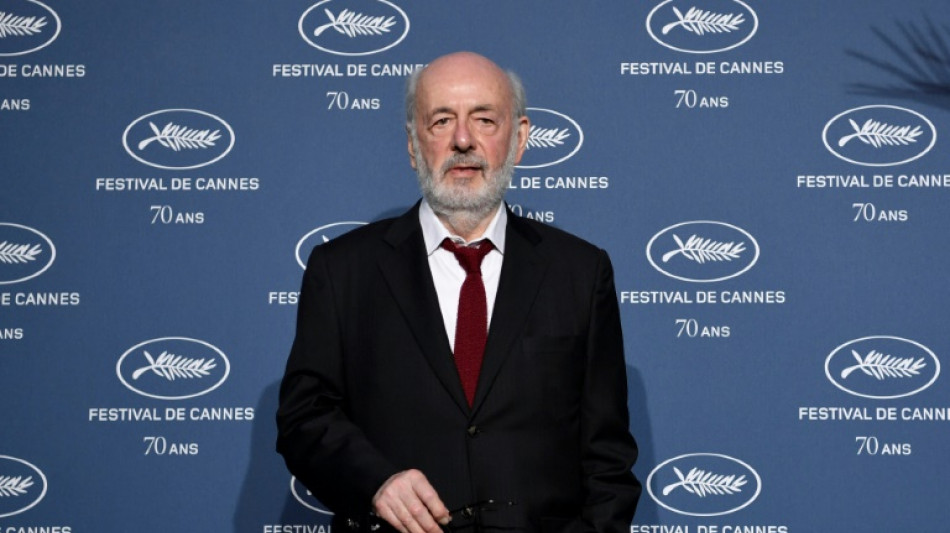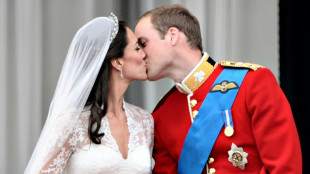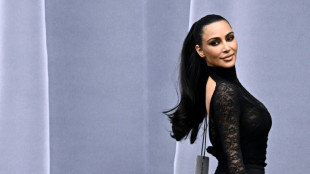

France's arch film provocateur Blier dies at 85
Veteran French film provocateur Bertrand Blier, who has died aged 85, made some of the country's biggest arthouse hits of the 1970s and 1980s, but is perhaps best known for unleashing the Gallic megastar Gerard Depardieu on the world.
Blier shocked France and launched Depardieu's career in 1974 with "Les Valseuses", a subversive tale about a pair of joyriding young thugs on a sex and crime spree across the country.
The title, which means testicles in French slang, was rather primly translated as "Going Places" for its American release.
Based on Blier's own novel, it became a cult classic and was the first of his nine movies with Depardieu, whom Blier later described as "my pet actor, my cinema brother, my alter-ego".
Its success also brought Blier out of the shadow of his father, the postwar acting great Bernard Blier.
A parable of male unease at women's liberation, many at the time found "Les Valseuses" morally ambiguous and its sex scenes brutal and vulgar, but its theme would dominate almost all of his later work.
The director died peacefully at home Monday night in Paris, surrounded by his wife and children, his son Leonard Blier told AFP.
- Wounded machismo -
The same wounded machismo ran through his biggest international hit, "Trop belle pour toi" ("Too Beautiful For You") in 1989, with Depardieu playing a man who grows bored by his beautiful wife and falls for his much plainer secretary.
Regarded as something of a modern classic, the New York Times called it an "exceptionally rich romantic comedy".
It also won Blier the jury prize at the Cannes film festival and five Cesars -- or French Oscars -- including best actress for Depardieu's then real-life partner, Carole Bouquet, who played the wife.
"What intrigues me again and again is how male friendships are relatively unproblematic, and yet when men approach what they passionately desire, then their problems begin," he said.
Blier burst onto the scene at a time when France's New Wave directors were running out of steam, with his black comedies peopled with marginal figures, villains, rogue policemen and prostitutes, seen as unique and unclassifiable.
He said he found modern cinema "irritating", though many found echos of in his work of the great Spanish surrealist director Luis Bunuel.
- Proud contrarian -
Blier had a close professional relationship with his father, but they differed sharply on politics with the younger Blier complaining bitterly that the actor had slid from the left to the right -- a journey he himself would to follow, in gender politics at any rate.
Balding, bearded and proudly contrary, with a pipe often hanging from the side of his mouth, Blier was born just before the outbreak of World War II in 1939 in the Paris suburb of Boulogne-Billancourt.
He followed in his father's footsteps, starting in cinema as an assistant director. In 1963, he directed his father, in his first feature, "If I Were A Spy".
But it would be another decade before he made his name with "Les Valseuses", which paired Depardieu with another of Blier's favourite bad boy actors, Patrick Dewaere.
- Oscar success -
Five years later he won the best foreign film Oscar with the menage-a-trois comedy "Get Out Your Handkerchiefs", again featuring the Depardieu-Dewaere duo.
In 1980 he won a Cesar, a French Oscar, for "Buffet Froid" (Cold Cuts), a mixture of absurd and realism, in which he directed his father for the last time, inevitably alongside Depardieu.
A born iconoclast, he was never happier than when poking fun at social mores, and had another hit with the provocative "Tenue de Soiree" (Evening Wear) in 1986, took on homosexuality and sex triangles.
But he could be gentle too like with "Beau Pere" (Stepfather) in 1982, his tale of troubled family relations.
But by the 1990s and 2000s after a string of commercial flops, Blier was having trouble securing funding for his films.
In 2010 he returned to surrealism with the "Clink of Ice" which broached cancer, with an alcoholic writer played by Jean Dujardin talking about his illness, which takes the form of a man played by Albert Dupontel.
P.Batteux--RTC



